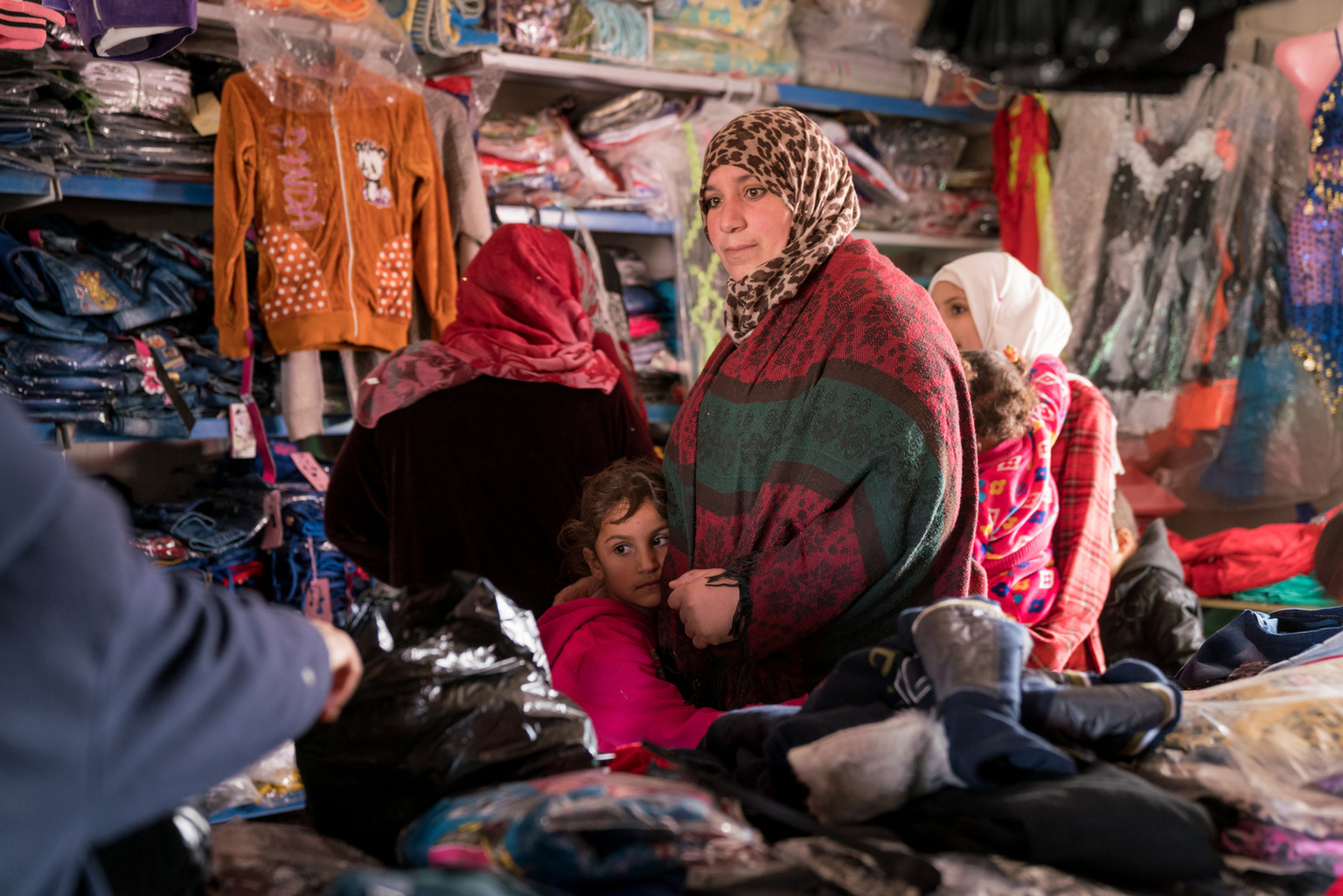
Solving Problems That Seem Too Big
When the temperatures recently dropped, I enjoyed an evening curling up by the fire to read to my family after filling our bellies with great food (happily, my husband does most of the cooking). Warmth, shelter, safety, food, family connection. These are simple pleasures in life that I know not to take for granted and I know that other Dining for Women members don’t either.
On November 15th, we announced two projects that are addressing the needs of women refugees in Jordan and South Sudan. For refugees, things that should bring comfort become points of panic, fear, and desperation. Through these new projects in a partnership with UNICEF, we are directly affecting the lives of individual women and their families. We are part of the effort to address the refugee crisis through new eyes – through a gender lens.
Right now, there are more displaced people in our world since the time period after World War II. According to the UN High Commission on Refugees, there are almost 66 million people who have been forcibly displaced – 55 percent of these are from three countries: South Sudan, Syria, and Afghanistan. The average displacement for a refugee is 17 years. 75% of Syrian refugees are women and children.* Problems of this magnitude cannot be handled by traditional methods.
Recently UN Women called for the Global Contract on Refugees and put women and girls in the center of the solution. As part of the Programme for Action, the following commitments were identified to ensure the greatest success for addressing the crisis:
- Mainstreaming a gender perspective in all refugee response initiatives;
- Promotion of gender equality and the empowerment of all women and girls;
- Fully respecting and protecting the human rights of all women and girls;
- Combatting sexual and gender-based violence;
- Provision of access to sexual and reproductive health-care services;
- Tackling multiple and intersecting forms of discrimination against refugee and migrant women and girls; and
- Recognizing and facilitating the significant contribution and leadership of women in refugee and migrant communities, to ensure their full, equal, and meaningful participation in the development of local solutions and opportunities.
While the problem is massive, the gendered perspective and approach is where we can ultimately make a difference. One of Dining for Women’s members recently volunteered in a refugee camp in Greece and saw this with her own eyes. Linda Baxter, a member of our Grants Selection Committee and the MA, Great Barrington-1 chapter, says:
“Seeing the camp in person and meeting many of the women living there has really given me a new perspective on the importance of assisting these women and their families to achieve a new life in a safe environment. Most of the camp residents I saw were families, mainly women with their husbands and several children. In only two weeks, I saw over 30 pregnant women in the new midwife clinic – all reporting the same health issues (headaches, backache, fainting, and feeling weak) which they ascribed to sleeping on the ground and to the food in the camp. “I can’t eat the food they give us” was a common complaint – which I viewed as symptoms of inadequate nutrition and dehydration in addition to major weight loss from long travels. All I could offer was iron supplements and a caring person to listen.
“Working for an NGO that was providing primary health care at the camp, I was able to observe first-hand the real difficulties these families are experiencing – from depression and hopelessness to the inability to obtain needed medical care and drugs. Suicide attempts, panic attacks, sick children without medicine and adults with chronic illnesses who have run out of medicine are frequent situations seen at the medical clinic. Greek doctors who provided care at the local hospital do not speak their language and usually offered no explanations.
“Their frustration sometimes turning to anger was understandable as they waited for life-changing decisions that were outside their control and offering an unknowable future. All they want is a chance to restart their lives somewhere that will be safe for themselves and their children.”
Linda’s personal account attests to the need, the desperation, and the impact that can be made. Please review our project for Syrian refugees in Jordan and our project in South Sudan. We are part of making a difference.
But don’t just take my word for it. Robert S. Ford, the last U.S. Ambassador to Syria (2011-2014), said in Foreign Affairs this month, “There is …one way in which [we] can still do good: easing the suffering of millions of Syrian refugees outside of the country.”
Please continue to look for updates on these projects. I find comfort in knowing that you stand with me and your fellow chapter members in being a part of these and all of the efforts we make to create a world full of peace and free from suffering.
